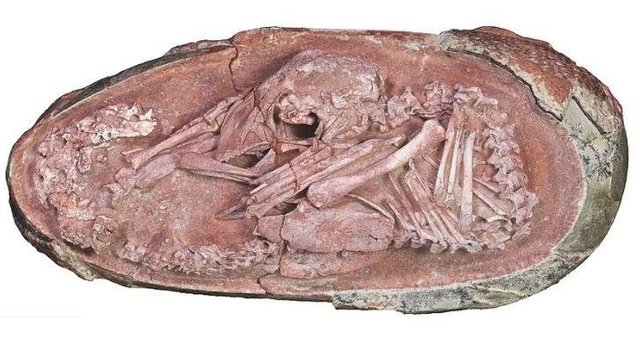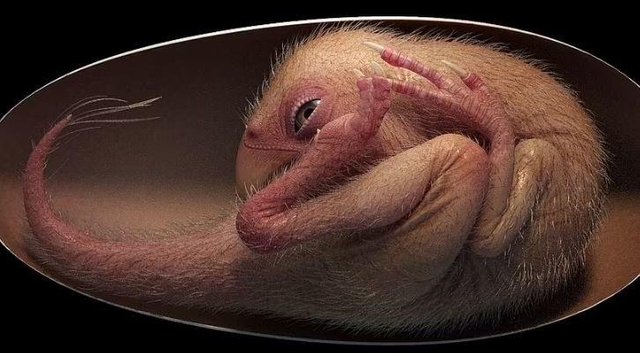Palaeontologists from the University of Birmingham have found an extremely rare, preserved dinosaur embryo curled up inside a fossilised egg, in southern China.

They say the embryo, which is in exquisite condition, dates back some 72 million years. The embryo has been named ‘Baby Yingliang’ (from the Yingliang Stone Nature History Museum in Xiamen) and was found underneath the rocks of ‘Hekou Formation’ at the Shahe Industrial Park in Ganzhou City, Jiangxi Province.
According to palaeontologists, the embryo belongs to a species of toothless beaked theropod, also known as oviraptorosaurs. They say that this is by far the most complete dino embryo known.
The embryo is reminiscent of a posture not very different from birds in the embryonic stage of development. In fact it is more reminiscent of that of birds than other dinosaurs.

This whole posture is similar to that of ‘tucking’ in birds which is a crucial embryonic behaviour controlled by the central nervous system to ensure successful hatching.
Seeing Baby Yingliang in this position hints that this particular position might not only be present in modern birds, but maybe it could have first evolved among non-avian theropod dinosaurs.
Paper co-author and vertebrate palaeontologist Steve Brusatte of the University of Edinburgh said in a statement, “This dinosaur embryo inside its egg is one of the most beautiful fossils I have ever seen. This little prenatal dinosaur looks just like a baby bird curled in its egg, which is yet more evidence that many features characteristic of today’s birds first evolved in their dinosaur ancestors.”